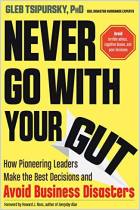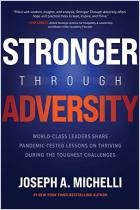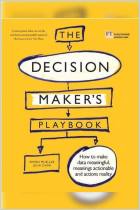
Article
Smarter COVID-19 Decision-Making
How to apply sound principles from decision science to your own life
Medium,
2020
Recommendation
Panic, fear, uncertainty – as the COVID-19 pandemic continues, these emotions can trigger a string of irrational decision-making. Data scientist Cassie Kozyrkov offers a more level-headed approach. As the head of decision intelligence at Google, she offers a systematic blueprint to help you reach rational decisions as you respond to the crisis. While the information is a tad simple for true “data nerds,” concerned laypeople will rest easier having a framework to help inform virus-related decisions moving forward.
Summary
About the Author
Cassie Kozyrkov is Google’s head of decision intelligence. She is an expert in data and decision-making.





















Comment on this summary or 开始讨论